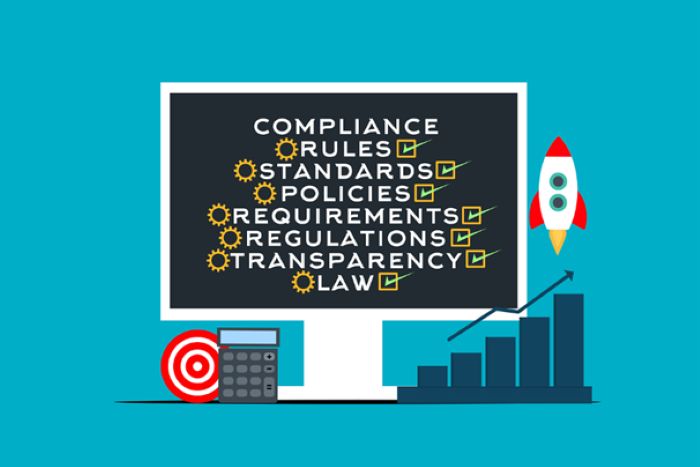Protecting patient data is the foundation of every legal healthcare business. Digital transformation of medical recordkeeping has made business operations smoother. But this digitization came at a price, cyberattacks and data breaches. Your healthcare facility and its records are not prone to these cyber threats, making strong HIPAA security measures essential.
The importance of HIPAA (Health Insurance Portability and Accountability Act) security training has grown significantly. Patient data is among the most sensitive and valuable forms of personal information. Individuals and teams handling this information should have strict protocols and safeguards in place to prevent unauthorized access to these credentials.
Table of contents
Empowering Employees with HIPAA Security Training
The nature of healthcare data makes it a prime target for cybercriminals. Data and medical records of patients may not be important to you but interested parties can go to any length to obtain this information.
PHI contains a wealth of personal and financial information, making it highly valuable on the black market. Breaches can lead to devastating consequences, including:
- Identity theft
- Financial fraud
- Reputational damage for healthcare organizations
- Profound loss of trust from patients
- Legal troubles with authorities
- Penalties and fines from the health department
HIPAA training focuses on training employees for the protection of data and information against possible cyberattacks. Having an antivirus, password protection, and similar protocols may work for a personal computer. Organizations have dedicated networks, custom software solutions, medical billing equipment, and secure servers to manage and store patient data.
ComplianceJunction has the best online HIPAA training courses available for employees of medical facilities. These training courses are tailored to the custom requirements of different medical setups. HIPAA not only mandates how protected health information (PHI) should be handled but there are other elements too.
It also requires that healthcare organizations take specific measures to safeguard it—starting with training their workforce. The DIY approach does not work for training your staff about HIPAA security training. A few slides and YouTube videos will offer no actionable insights and knowledge that your employees might benefit from. Only professional training courses by expert instructors can help you achieve the desired outcomes.

Reasons Why HIPAA Security Training is Important in 2025
A business needs to invest in HIPAA training not only because of a legal requirement but also as an investment in the safety of patient data and business growth. Although HIPAA training is a legal requirement as per the Privacy and Security Rules many organizations fail to understand its importance.
Healthcare providers, covered entities, and business associates must be trained on the policies and procedures related to HIPAA. According to the HIPAA Security Rule, Business Associates and Covered Entities must implement training and awareness programs for all employees. All workforce must be trained, including the employees who have no direct access to Protected Health Information (PHI).
In 2025, almost everyone has basic knowledge about protecting personal data and information. Things get complicated when it comes to handling patient data. Cybersecurity training is vital to HIPAA but must be tailored for healthcare staff. Normal security SOPs don’t usually fit into the medical business settings. Here are some major reasons why HIPAA Security Training is a must for healthcare providers and all staff members in 2025.
1. Demonstrate Good Faith
Despite efforts and training sessions by the management, incidents can happen. The violation of HIPAA policies and procedures may result in an investigation by OCR. In this situation, the organization needs to show good faith by presenting documentation and certificates about the successful implementation of security awareness programs.
This approach will make a good impression on the investigating authorities and a business claims the violation as an isolated incident. Failure to present the evidence of professional HIPAA Security Training of the staff will result in financial loss for the business and serious fines and penalties.
2. Legal Requirement and Serious Consequences
Failure to meet the standards set by HIPAA can bring issues and financial troubles for the management. For serious violations, an organization might have to pay heavy fines. The Office for Civil Rights (OCR) enforces HIPAA rules and has issued millions of dollars in fines for violations stemming from insufficient employee training.
There are countless events where staff prevented data breaches because they knew how to handle the situation. A little investment in the right security training program saved your business from paying hefty fines. Financial loss is just one part of the damage caused by data breaches.
These incidents shatter the trust of the public. Patients expect their personal data and information to be protected against any type of illegal use. These types of incidents make patients question your business values and standards. Lack of trust from the masses is the worst thing that can happen to any business.
3. Prevent Possible HIPAA Violations
When we talk about fines for HIPAA violations, it is not about just a few hundred dollars. For serious incidents, these fines can be quite heavy. Just for your understanding, in 2022, Medibank faced a potential fine of $21.5 trillion.
The incident was about a cyberattack that compromised customer data. This breach led to significant reputational harm and highlighted the consequences of insufficient data protection. Your healthcare business may not face such massive fines but still, these incidents can cause financial and reputational damage beyond your expectation.
4. New Technologies Pose New Risks
Mobile apps, telehealth, custom healthcare software solutions, cloud data storage for medical recordkeeping, and many other new technologies have become part of healthcare facilities. Healthcare organizations must ensure that their workforce is equipped to handle new platforms while remaining compliant with HIPAA standards.
Scenario-based training sessions can get your workforce ready for the possible issues and threats that might arise. Training and awareness programs also need to be upgraded according to the new technologies.
Tailoring training to each staff member’s role helps make the content more relevant, engaging, and effective. Cybersecurity in HIPAA training must address the unique risks of managing PHI and safeguarding it against any potential attack by hackers or unauthorized individuals.
5. An Optimized Workplace Structure
Training programs build a sense of responsibility among employees. When staff members clearly understand their role in the organizational structure, they are more likely to take their responsibilities seriously. Behavioral change toward security and safety is only possible with ever-evolving programs and awareness sessions.
With clear roles assigned to every employee, everyone simply does his own job to protect PHI. When employees access the minimum data that is essential, it prevents possible data leaks. Human errors are part of any organization and most of these incidents happen when people try browsing through sensitive data out of curiosity. Clearly defined roles and responsibilities limit the access of unauthorized and irrelevant members.
Healthcare HIPAA Security and Unique Challenges
All types of healthcare businesses and providers should understand that healthcare cyber security is totally different from standard IT security. It is a common mistake by organizations as they don’t invest in the right training programs. The cyber awareness army encourages medical centers to understand the importance of custom training programs. Generic IT security training is not enough for healthcare businesses.
Healthcare environments involve a complex network of systems, medical devices, and third-party services. All of these elements and components of the structure must be secured. Some custom steps of the healthcare security training program may include:
- How to recognize phishing attempts that specifically target healthcare staff
- Secure mobile communications between practitioners
- Properly dispose of devices containing PHI
- How to handle and store physical files
- Safely accessing sensitive information from your personal devices
The training should also emphasize the importance of access controls, password hygiene, and timely reporting of suspected breaches. These points may seem too obvious and easy to understand but the high-pressure environment in hospitals makes it easier for employees to make mistakes.
HIPAA Compliance is a Team Effort
Maintaining HIPAA compliance and protecting patient data is not the responsibility of a single person. Doctors and higher management are not the only relevant entities in HIPAA compliance. All employees and staff members are important here. Staying HIPAA-compliant is a team effort where every player adds value.
Desired results to prevent HIPAA violations are only achieved if healthcare security training is provided by experienced instructors. Generic IT security isn’t enough—healthcare-specific cybersecurity is essential for HIPAA. When done right, HIPAA security training empowers staff to act with confidence and vigilance. It reduces the risk of costly breaches and enhances the overall safety of patient data.
Final Verdict
The importance of understanding HIPAA’s Privacy, Security, and Breach Notification Rules cannot be overstated. These regulations directly inform how PHI should be handled and protected. Records about data breaches at hospitals and healthcare businesses are publicly available.
Reports and data about the incident will be available to the masses. Without having qualified staff for the safety of patient data, no organization can defend its name if things go wrong with HIPAA security. Training programs fill the gaps that might be potential targets of hackers. Your staff needs to be trained well to maintain HIPAA compliance in 2025.











